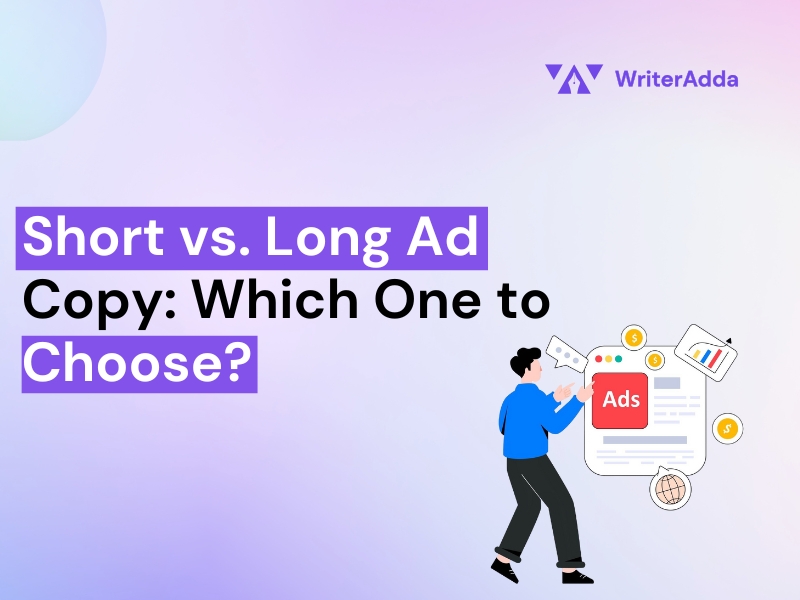Everyone who creates content for their company eventually hits a wall with ideas. They’ve shared all the details about their products and services, their team, and company mission. They might feel like they’ve exhausted all their marketing efforts. It’s a common situation that often leads to a halt in content creation, separating those serious about content marketing success from those who aren’t. While it’s tempting to think skipping a week or a month of content won’t affect your audience, the truth is people visit your website to make purchases, making it a crucial marketing channel. Letting your site go idle can make it look outdated and harm its search engine ranking. So, what do you do when you’re stuck for fresh content, practical advice, or engaging stories? The answer is simple: refine your marketing.
What Does the Marketing Term “Granular” Mean?
“Granularity” in business refers to the level of detail considered during decision-making. Data granularity indicates the extent of detail in a set of results. Imagine the beach’s sand – from afar, it looks like a mass of tiny particles, but up close, you see individual grains. Granular marketing is akin to this. It comprises numerous articles, audio files, and videos covering every aspect, statistic, and phase of the customer journey.
The key to excelling in content marketing lies in granular marketing. Major empires like Hubspot have risen to prominence through meticulously crafted blog posts that delve into every detail and statistic within their niche. While this strategy is brilliant, it demands exceptional performance to succeed.
The Details Are What Count
The only way to influence your audience is to provide them with insightful content consistently. You will discover countless insights you can provide if you go deeply into the specifics of your company. You will be even more successful in drawing in a larger audience with your content marketing if you go deeply into the subjects, passions, and areas of expertise your business specializes in.
For example. Let’s say that you run a Petcare and training business that caters to dog owners. Enhance your reach by sharing dedicated websites or social media accounts focused on specific dog breeds. Utilize Google AdWords to target these breeds effectively. Providing specific content ideas tailored to breed-related searches will drive more traffic to your site. By customizing your marketing to match their dog breed interests, you’ll captivate and engage your audience effectively. Tailoring information to specific audiences’ boosts sharing potential on platforms like Quora, Facebook Groups, Reddit, and in blog posts.
The Correct People Can Be Targeted with Granularity
The main concern when developing granular content marketing is almost always that it will turn away more “generic” website visitors. It’s a legitimate concern. But that isn’t how marketing functions. If you map out their customer journey, you will probably discover that most of your target market is more than a generalist. They are searching for metrics, data, and insights to make judgements. Very few consumers will choose a brand without first learning all the information. Using the previous example again, it’s true that those who don’t love dogs might not read your essay, but that’s a good thing. Posts with specific content can help you narrow down your target.
Your post won’t be read by those not in your target market. This implies that you are only focusing on members of your target market. Content marketing activities are more effective at filtering their target demographic than paid advertising. The best part is that Google rewards companies that give the public access to thorough, insightful information. Granular marketing accomplishes more than just giving your business prospects pertinent insights and data in this manner. It makes it easier for search engines to determine how to rank your material. Your business will obtain more organic traffic the more relevant your content is.
You Must Be Well-Informed
Creating comprehensive marketing material is akin to teaching. It demands thorough research, precise responses, and a deep understanding of your audience to effectively address their needs. Establishing authority in your field is crucial for building credibility and becoming the preferred choice. Niche customers can swiftly pinpoint any shortcomings in your content, potentially undermining your credibility.
However, if done well, granularity in your material establishes your company as a prominent authority and draws in a devoted following. The more thoroughly you can respond to their inquiries, the more trust and information they will give you. Investing time and energy in your content marketing or hiring a content marketing specialist is a great way to differentiate yourself from the competition. (Remember: producing granular content will seem like too much labour to rivals in your market. Because of this laziness, your business will have more opportunities to corner the market and improve your Google rankings.)
Granularity provides channel optimization advice.
Discovering which publisher or ad network yields the most outstanding results is beneficial. However, there are instances when understanding a network or publisher’s internal operations is even more crucial. Yelp’s Head of Performance, Eyal Grundstein, states, “Obviously, Facebook is the biggest social channel, but Pinterest, which is often overlooked, is an interesting play.” Experimentation and granularity were the keys to Yelp’s Pinterest performance unlock.
Click-through rates increased five times when Yelp began targeting “odd things” like nail salons, in contrast to the general results of their initial advertising. Another discovery is that many people seek tattoos on Pinterest, which leads to the popularity of tattoos. Targeting and showcasing tattoos in advertisements increases conversions by ten times.
Granularity reveals which publications are doing well.
Most ad networks buy inventory from publishers or sub-publishers to meet impressions and conversions for their clients. Occasionally, this causes advertisers to lose the capacity to optimize for optimal performance. They cannot do so or are not examining the sub-publisher outcomes underneath the top-line campaign statistics.
Granularity aids in preventing ad fraud.
Granularity, according to Grundstein, is essential to preventing fraud. For example, impression-level data is a must. It also connects the ad tech’s technical aspects to the real-world experiences of users, clients, and your product. According to Warren Woodward, the Executive Director of User Acquisition at Nexon, there’s no better method to understand the situation truly. Woodward frequently asked his advertising colleagues to “show me this ad in the wild.” “You’d be surprised at how many sources falter when you ask them where the traffic is. Could you please show me?
Furthermore, source-level data helps you identify high achievers and identify possible fraud in the same way. Particularly when your objective posts are stated clearly in the sequence of ad insertion: “We will consider that incentivized or some other type of fraud if we see a source as having over ‘x’ number of installs and [it] deviates from that norm by over 50%,” adds Woodward. “This game usually has a 90% tutorial completion rate.”
Granularity aids in preventing you from competing with yourself for ad space.
According to Yelp’s Head of Performance, Eyal Grundstein, having more granularity at the publisher level allows us to “strategize and understand where not to overbid or bid against yourself.” “For instance, if two distinct DSPs are both purchasing on Mopub and you are purchasing on one of them, they may bid against each other, particularly on a certain placement if there is sufficient volume or sufficient relevancy.” Put differently, the advertising area is intricate and bustling. Additionally, if you’re a big marketer, you’re probably working with 10 or more advertising partners, which increases the possibility of campaign collisions.
Granularity facilitates regional customization.
According to Andy Park, Director of User Acquisition at Kabam, marketing needs data at the national and local levels. According to Park, “People in China like to like and comment on ads, especially on Tiktok, the country’s top video platform.” “How people consume media across geos is different,” he notes. In two days, one advertisement received 37,000 likes and 600 comments. Park says creatives exist in various forms, sizes, and user experiences. The secret is to be able to show several creatives to various audiences and respond suitably based on which ones resonate.
Patrick Witham, Director of User Acquisition at Postmates, adds that this also permits regional targeting. “We do city-level targeting,” Witham states, adding that geotargeting with ad network data has some restrictions. He continued by saying that separating campaigns for several geographic areas might also restrict size and make overall campaign analytics more difficult. More precise targeting often yields superior outcomes since “specificity drives conversions.
Conclusion
In general, individuals turn to the internet to find solutions when they have problems. Instead of looking for broad solutions, they look for targeted ones. Businesses that take the time to provide detailed answers to the questions will garner the most significant interest. In addition to demonstrating expertise, granular content marketing demonstrates an actual passion that your audience will connect with. The more you obsess about a subject, the more readers, viewers, and listeners want to continue picking your brain for knowledge.
Remember that your target market is detail-oriented before getting too engrossed in attribution models, customer segmentation, data analytics, or any other trendy marketing tactic. The secret to great marketing is knowing what your target audience wants and providing it to them. Seek opportunities to fine-tune your marketing and observe as your audience expands.
Frequently Asked Questions
What is granular marketing?
In digital marketing, granularity is the capacity to break down large, chunky marketing campaigns and ad buys into their smaller constituent parts.
What is granular content?
As the name implies, granular data is information broken down into the smallest feasible parts to be more precise and in-depth. Granular data has the benefit of being moldable, much like sand granules that fit into their container, according to the needs of the data scientist or analyst.
What is a granular approach?
Instead, it's a method of analyzing data that acknowledges how various and intriguing patterns might appear at various granularities, much as how different characteristics stand out in satellite photos with varying degrees of resolution.
Why is it called granular?
Granular refers to something composed of tiny particles, such as grain or sand. Granular derives from the Latin granum, which means "grain." Coarse and gritty are other terms for items that are granular.
What does granular serve as?
Granular materials are frequently employed in infrastructure systems as unbound load-bearing layers that significantly impact performance, upkeep, and operation.




